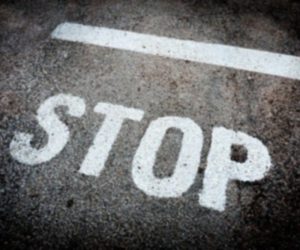Family Addiction: How to Stop Enabling a Loved One’s Drug Abuse

There are so many things that affect the family dynamic when there is drug or alcohol addiction in the home. Every family member responds to the addict and their behavior in their own personal way. The family may agree to work as a team, but most often each member reacts differently to the issues that arise from addiction. Sometimes family members will become enablers in their thoughts, words and actions. Enablers allow the addicted person to continue in their behavior by covering up for them and doing whatever they can to assist the addict and maintain the status quo. Instead of helping them recover, enablers allow them to continue on their path of self-destruction. Family addiction therapy can help loved one’s and the patient learn how to better cope with the disease and strengthen their relationships.
Enabling Addiction
Most often addicts will not stop using drugs or alcohol unless they have to. If someone in the family gives the addict money to buy food or pay a bill, they are enabling the addict. If the addict had to work to pay for those things, they probably would not have extra money for drugs or alcohol. By paying for things that the addict should be paying for and being responsible for, is enabling the addict to continue in their addiction. Sometimes an addict will find them self homeless because the person they were living with could no longer put up with their addiction, or they could no longer pay their rent. If you decide to take them into your home, you become an enabler. You are allowing them to continue using drugs or alcohol while giving them shelter.
Making verbal excuses for an addict’s addiction is also enabling them. By placing the blame for their addiction on another person or circumstance, you turn the addict into a victim and allow them to appear faultless. Regardless of what an addict experienced in their life, it is still their decision to continue using drugs or alcohol. They are not faultless if they choose to continue in their addiction, and your words only enable them.
Whatever words and behavior that family members use that enables the addict must be destroyed. The family dynamic that keeps enabling the addict must not be allowed to continue. It must be dismantled and replaced by the proper structure. This structure is sometimes called “tough love”. Only when this is accomplished will the addict have a chance at getting free from addiction.
Tough Love
The entire family must work together as a team and not deviate from the plan. Every thought, word, action and system that enables the addict must be removed. Each family member must question their own motives. If they truly want to see their loved one get well, then they must adhere to the new rules of engagement. Once the entire family agrees to replace the enabling system it will fall, and a new one will take its place. As the adage goes, “you are only as strong as your weakest link.” If one family member falters it may ruin all the progress that was made and you may have to return to square one and start from the beginning. Be strong and in control, don’t weaken or falter. It is the only way to help your loved one get well.
The hardest part of tough love is watching and waiting for your loved one to hit rock bottom. Unfortunately, sometimes this is what it takes to wake an addict up. You have to keep focusing on the goal of recovery and not on the present circumstances. Continue giving your loved one encouragement to get well. Once the addict is ready to receive help for their drug or alcohol addiction, assist them in getting the proper professional help. A State certified rehab facility can provide a safe, effective and comfortable detox process for your loved one. They will slowly be weaned off all the drugs or alcohol that they were taking. They will also receive psychological and behavioral counseling. These programs will benefit the recovering addict by preparing them for a life of sobriety.
Actively be engaged in your loved one’s rehabilitation process and aftercare. The family can provide tremendous support to a recovering addict. Together, you can all build a new and better life.
If you or a loved one needs help with abuse and/or treatment, please call the WhiteSands Treatment at (877) 855-3470. Our addiction specialists can assess your recovery needs and help you get the addiction treatment that provides the best chance for your long-term recovery.
